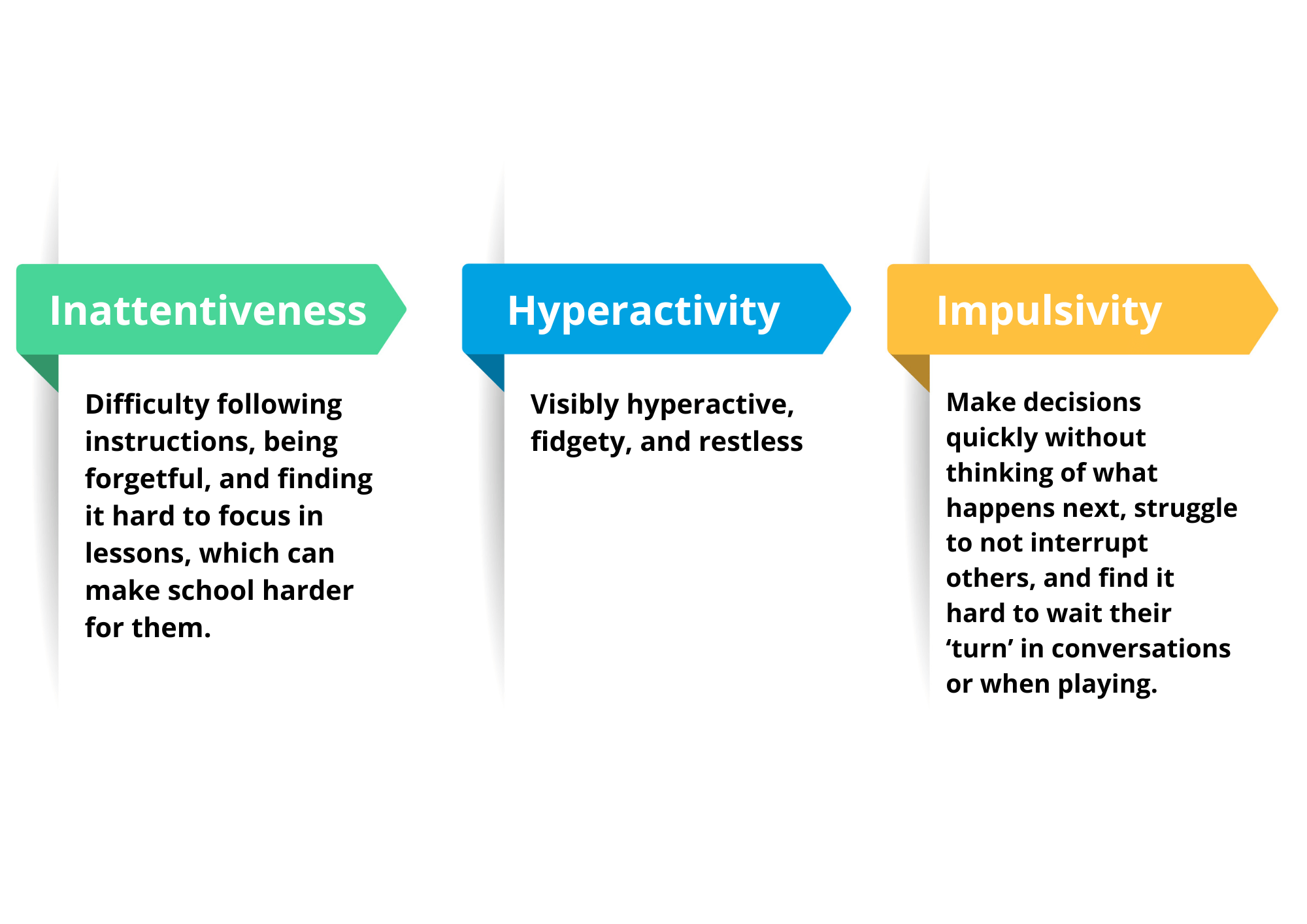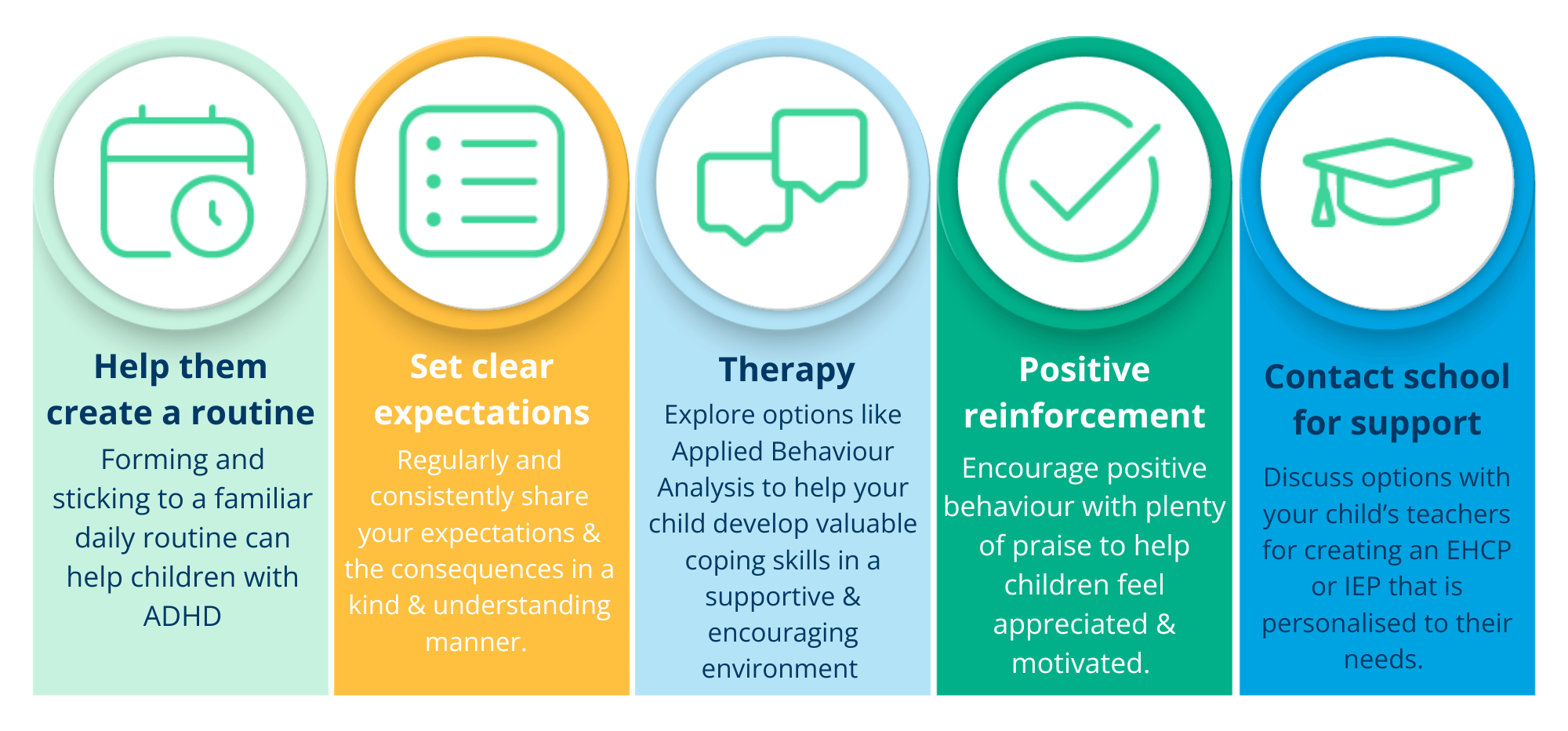ADHD in children
Attention-deficit/hyperactivity disorder (ADHD) is a neurodivergence in children that can greatly influence their day-to-day activities and lives. Below, we will explore the symptoms of ADHD in children, how it differs from ADHD in adults, and common misconceptions. We’re here to support you and your child every step of the way. We’ve gathered helpful information about the available support options and how our services can assist your child with ADHD to thrive.
How ADHD in childhood differs from ADHD in adulthood
Although ADHD in children shares some similarities with ADHD in adults, it often looks slightly different. Common symptoms are:

Myth-busting common misconceptions
Myth 1: ADHD is caused by poor parenting or lack of discipline
Fact: ADHD is a neurodivergence and does not occur due to differences in parenting. Children with ADHD can thrive with personalised strategies and support.
Myth 2: Children will outgrow ADHD
Fact: While symptoms can look different throughout their life, ADHD often continues into adulthood.
Myth 3: Medication is the only treatment
Fact: There are many ways to help children with ADHD minimise the difficulties they may experience. Some options include therapy, educational support, behavioural interventions, in addition to medication.
Myth 4: Only boys can have ADHD
Fact: ADHD symptoms often look different in girls and boys. Girls with ADHD may struggle more with inattention symptoms, making ADHD less noticeable than boys who experience hyperactivity. This can lead to underdiagnosis in girls and women.
How can you support your child?

Getting the right support
- A diagnostic assessment: to test and confirm an ADHD diagnosis. You can book this with us at Aim Forward here.
- A needs assessment: to understand their strengths and weaknesses and create personalised strategies to help them excel in education. You can book this with us at Aim Forward here.
- Medication: after a formal diagnosis through the NHS or a private clinic, such as Aim Forward, you can consult your GP for medication.
- Therapy: some therapies, such as Cognitive Behavioural Therapy (CBT) can assist and put in place valuable help.
- Parenting training programmes: there are many courses available for strategies on how to help your children with ADHD
- Support groups: you can connect with other parents through forums and groups who are in similar situations as your family
How Aim Forward can help
A diagnostic assessment can help identify the strengths and weaknesses your child experiences and equip you both with recommended strategies for learning their way. A diagnosis of specific learning difficulty (SpLD) with ADHD characteristics is recognised under the 2010 Equality Act and can help you access a personal learning plan at school or university.
You can also talk to our Support team about your child having a needs assessment with us. Needs assessments are an informal meeting where you and your child chat with one of our friendly assessors and co-create strategies to help them excel in learning and everyday life. The needs assessment will help them understand their strengths and weaknesses and how their cognitive profile impacts their learning. The assessor will then work with you both to create personalised strategies to help them learn their way, which can cover areas like:
- Reading and writing
- Presentations and note-taking
- Time management and organisation
- Revision and exam preparation
- Their environment
- Their wellbeing
- Assistive technology, apps and AI
Our aim of our needs and diagnostic assessments is to provide solutions and assistance in shaping your future and empowering you with confidence and knowledge about your neurodivergence.

